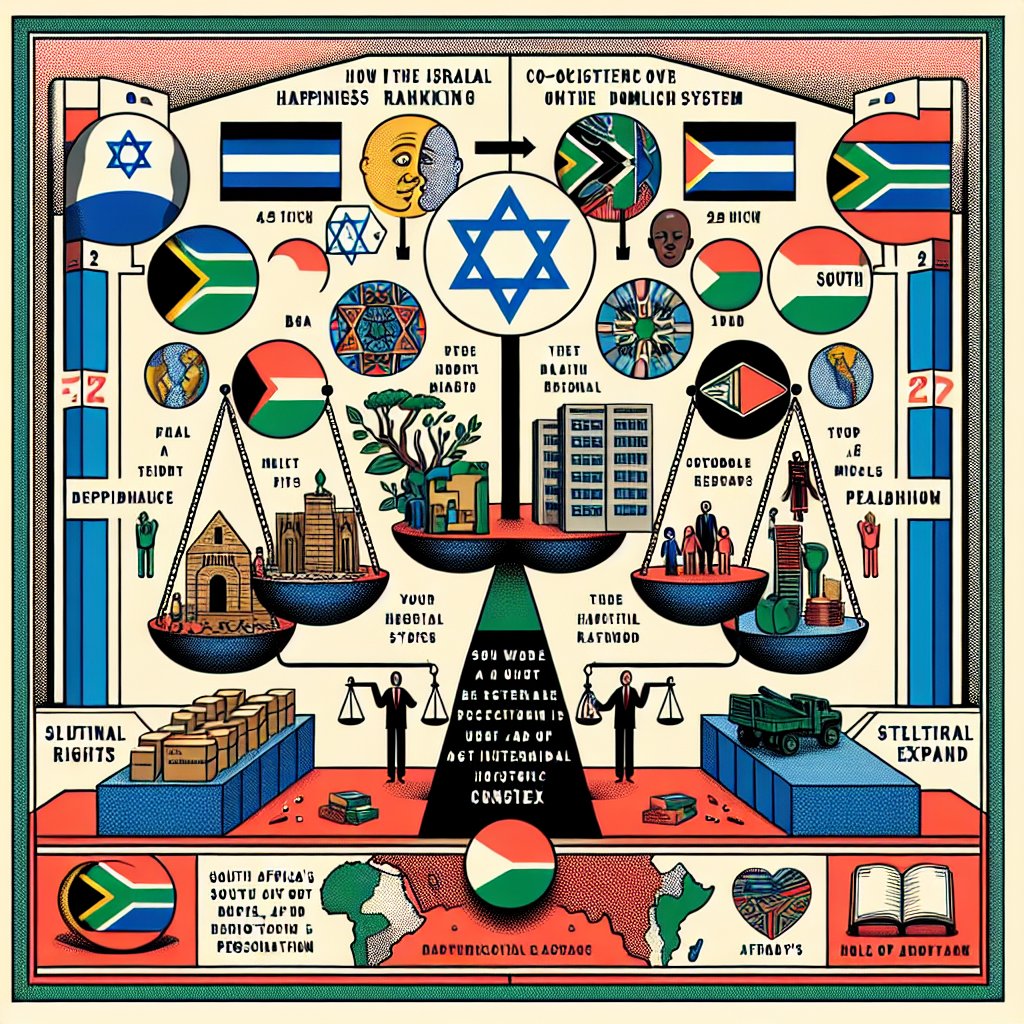Content created by AI
Understanding South Africa's Stance on Israel and Palestine Amid Historical Complexities
South Africa's historical engagement with the geopolitical complexities of the Middle East, particularly the nuanced context of Israel's founding and the ensuing Israeli-Palestinian conflict, continues to shape the country's foreign policy and public discourse. The recent opinion piece by Len Bennett provides a perspective affirming Israel's status as a "Jewish and democratic state."
Bennett highlights the coexistence of different ethnic groups in Israel, including Israeli Arabs, and their participation in various aspects of the country's infrastructure, from political representation to higher education. In contrast, he underscores the governance issues within the Gaza Strip and parts of the West Bank, drawing attention to the Palestinian Authority (PA) and Hamas, which handle the administration of their respective regions, separate from Israeli law.
The contention that Israel retains sovereign rights over certain territories under international law is a subject of international debate and forms a part of the discourse that divides global opinion. The longstanding issue of settlement expansion in the West Bank, for example, remains a controversial topic in the realms of international politics and law.
The peace process, a dormant dialogue marred with mistrust and halted negotiations, is another aspect Bennett touches upon. He criticizes the educational and social constructs within Palestinian territories for allegedly propagating anti-Jewish sentiments, stating that these perspectives obstruct the path to coexistence and peace.
The opinion piece concludes with an assertion that Israel is ranked as one of the happiest countries in the world, suggesting this as a standard to which its neighbors could aspire if regional dynamics were to change.
It is essential to contextualize this article with South Africa’s own unique history of apartheid, a system of institutionalized racial segregation that influences its foreign policy and humanitarian outlook. South Africa's empathy with the Palestinian cause is rooted in its own struggles against oppression, leading to a foreign policy that often leans towards advocacy for Palestinian self-determination and critique of Israeli policies perceived as oppressive.
The complexities of South Africa's position are deepened by the nation's prioritization of human rights and the rule of law, which buttress its diplomatic engagements. In the international arena, South Africa supports multilateralism and has historically called for a negotiated two-state solution that ensures both Israel's security and Palestinian sovereignty.
In light of this narrative, the opinions of Bennett, while representing a certain viewpoint, contribute to a larger debate that is anything but uniform. The balance between safeguarding Israeli security and enabling Palestinian self-determination forms a pivotal part of the ongoing dialogue. South Africa, with its unique history, serves as one voice among many in the international community attempting to navigate and contribute constructively to this complex and deeply emotive global conversation.

